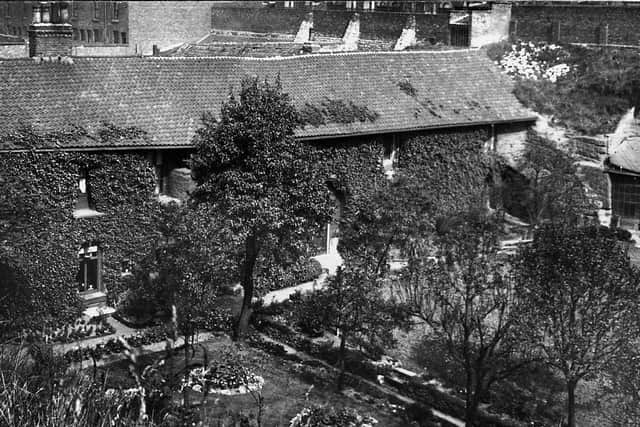Sand House, Doncaster: Bid to rediscover historic building which is buried beneath car park
The Sand House was a prominent attraction in Doncaster from the 1850s to the Second World War and has long been one of the area’s most talked about lost buildings.
Now a search for the remains of the building is to take place.
Advertisement
Hide AdAdvertisement
Hide AdEnthusiasts hope the survey will help track down the exact location and remnants of the building which was bulldozed many years ago to make way for the Balby Bridge flats.


A spokesman for the Sand House said: “Whatever remains of the Sand House lies beneath Silverwood House car park.
"Our friends at Discovery Surveys Ltd have been helping us a great deal in trying to find evidence of the house by using Ground Penetrating Radar.
"A survey carried out in September 2021 used equipment that was capable of sending a radar signal deep enough into the ground.
Advertisement
Hide AdAdvertisement
Hide Ad"However, it proved not to have the sensitivity to pick out any house walls that might remain, among the general fill material that surrounds them.
"Discovery Surveys now have some much more sophisticated equipment and they are going to try another survey in the next few weeks.
“With GPR equipment there is always a compromise between sensitivity and depth of ground penetration.
"If the walls of the Sand House were not demolished before being submerged in fill material then there's a good chance of detecting the tops of them.
Advertisement
Hide AdAdvertisement
Hide Ad"If they were partially or wholly demolished then we are unlikely to find anything. And the random nature of the fill material below the car park could be a hindrance. We shall see!”
The mansion-sized dwelling was carved from solid sandstone by Victorian businessman Henry Senior. As well as carving the house itself, which stood in a former quarry, Senior excavated into the adjacent ground and created a network of tunnels, decorated with fine and unusual carvings.
Although the Sand House is no longer physically present, its tunnels, especially, are remembered by a great many people.
They survived for decades after the house was lost and they became an unofficial playground for local youngsters from the 1940s until the 1960s.
